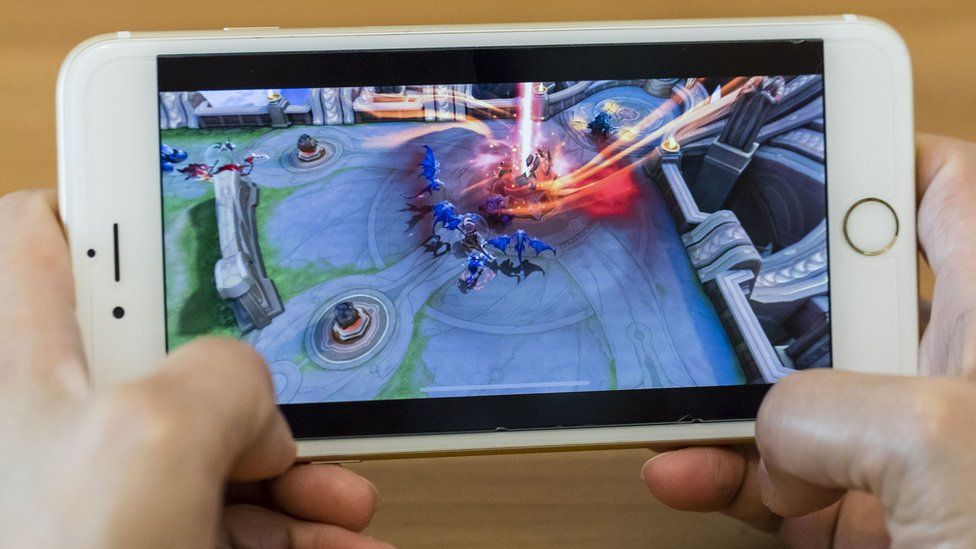Chinese gaming giant Tencent is rolling out facial recognition to stop children playing between 22:00 and 08:00.
The “midnight-patrol” technology will stop “tricks” circumventing the government curfew, introduced in 2019 with a cap on what young gamers could spend on in-game transactions, it says.
The bans require gamers to register with their official IDs, linked to a national database.
But children have reportedly been using adults’ IDs instead of their own.
And now, anyone playing for a certain length of time will require a facial scan to prove they are an adult.
Tencent started testing the system in 2018 – but it will now cover more than 60 games from the world’s biggest game company.
It announced the expansion on China’s QQ messaging service, calling it “zero-hours cruising”, which China news site Sixth Tone translated as “midnight patrol”.
Many of Tencent’s top titles, such as Honour of Kings and Game for Peace, are for phones – mobile gaming is far more popular in China than the West.
Facial recognition is easier to implement using a phone’s camera than on a computer or games console.
And age checks using cameras are already being suggested to verify users’ age for online sales of adult products.
The World Health Organization formally recognised gaming addiction in 2018.
And the following year, the NHS adopted treatment plans for what is seen as a rare disorder affecting only a small proportion of hardcore gamers.
But in China, video games have often been accused of having a negative impact on young people, including near-sightedness in children.
And in a bid to tackle what China considers “problem” gaming, all new titles must be approved by a regulator, which in 2018 “froze” releases and has since appeared to limit the number.


